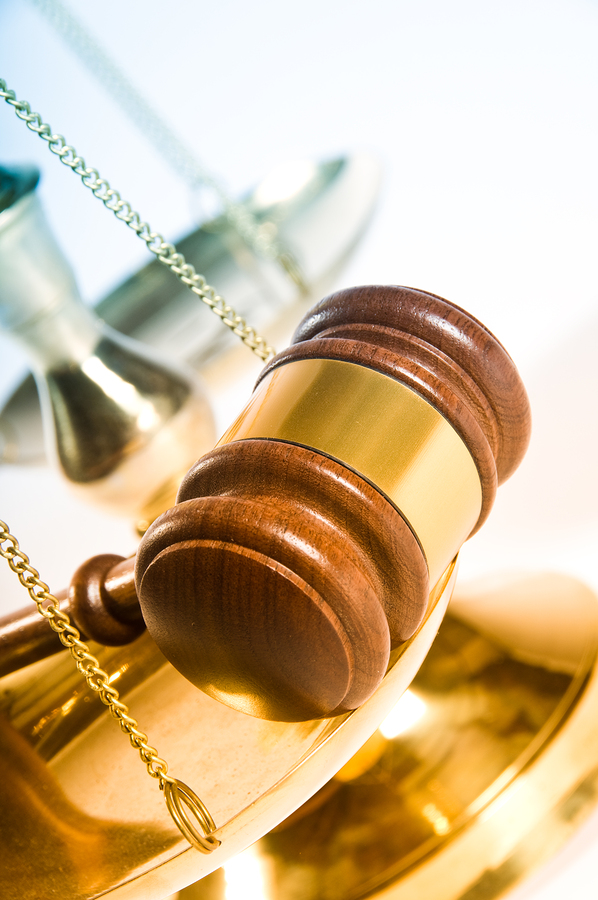
An unusual legal phrase has emerged during the Supreme Court confirmation process for Judge Brett Kavanaugh: "under penalty of felony." A recent letter from Kavanaugh's friend Mark Judge to the Senate Judiciary Committee said he was signing it "under penalty of felony." During the Sept. 27 hearing involving Kavanaugh and research psychologist Christine Blasey Ford, who has accused him of sexual assault when they were teenagers, Kavanaugh and several Republican senators referred to witness statements given to the committee "under penalty of felony."
In nearly three decades of practicing and teaching federal criminal law, I don't recall ever hearing the term before. But it's not wrong, and it's not just some kind of legal smokescreen, as some have suggested.
Most people are familiar with the phrase "under penalty of perjury." Perjury criminalizes false statements or testimony given under oath. Kavanaugh and Ford both testified under oath on Thursday and so were subject to penalty of perjury. Letters or witness statements submitted to a congressional committee typically are not sworn to under oath, so perjury would not apply.
But that doesn't mean witnesses providing such statements may lie with impunity. A federal statute, 18 U.S.C. 1001, criminalizes material, intentional false statements made in any matter within the jurisdiction of the federal government, even if those statements are not under oath. It's the charge that former national security adviser Michael Flynn and former Trump campaign adviser George Papadopoulos pleaded guilty to after lying to the FBI during unsworn interviews in connection with the investigation by special counsel Robert Mueller. The statute also applies to congressional investigations, and it is punishable by up to five years in prison. So unsworn statements to a Senate committee may indeed be said to be made "under penalty of felony."
On Sept. 18, Mark Judge's attorney sent a letter to the Judiciary Committee stating that Judge doesn't recall the events described by Ford and would prefer not to speak publicly. Then on Sept. 27, after Ford's riveting testimony again placed Judge in the room during the alleged assault by Kavanaugh, Judge and his lawyer sent a second letter to the committee, again denying any recollection of the events. Perhaps hoping to strengthen his statement and head off any further inquiries, he signed this one personally, "under penalty of felony."
Now that the background investigation of Kavanaugh has been reopened, the FBI will undoubtedly seek to interview Judge. He has said he will cooperate "with any law enforcement agency that is assigned to confidentially investigate these allegations." His lawyer has also pledged that Judge will cooperate and will answer "any and all questions."
But the prospect of the FBI interview raises several legal issues for Judge. If he were to say anything during the interview that contradicted his letter to Congress - if he now reported remembering events surrounding the alleged assault, for example - he could expose himself to charges of making false statements. Judge may or may not be concerned about discussing events from his youth. But he has to tell the truth to the FBI - under penalty of felony.
In a background investigation, the FBI can't grant anyone immunity from prosecution. Despite Judge's request, the FBI also can't really guarantee confidentiality - the bureau's report is going to Congress and seems almost certain to be made public. Nor can the FBI compel Judge to talk to them; no one can be compelled to sit for an FBI interview.
Despite Judge's pledge of cooperation, if his lawyer decides that he is in legal jeopardy or if Judge decides the process won't be sufficiently confidential, he could refuse to be interviewed by the FBI.
That's one way in which the renewed background investigation, although certainly better than nothing, lacks the legal clout of a congressional hearing. Congress could have subpoenaed Judge, and he would have been compelled to attend. He would have been required to testify under oath, unless he asserted his Fifth Amendment right not to incriminate himself. If he did take the Fifth, Congress could immunize him and compel him to testify. But when the FBI knocks on his door for an interview, Judge, like any other witness, is free to decide whether to answer.
The term "under penalty of felony" may have been largely unknown before these hearings, but I kind of like it. Maybe it will catch on. It's an accurate way to characterize both witness statements to Congress and interviews with the FBI. Those about to be interviewed by the FBI as part of Kavanaugh's renewed background investigation would do well to keep that in mind.
(COMMENT, BELOW)
Eliason teaches white-collar criminal law at George Washington University Law School.


 Contact The Editor
Contact The Editor
 Articles By This Author
Articles By This Author